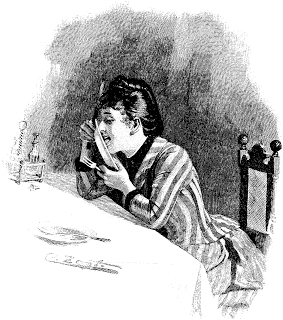I came across the term “the watcher” reading the late and controversial, Buddhist monk, Chogyam Trungpa’s book, Cutting Through Spiritual Materialism. The watcher is the expression of self that learns, over decades of socialization, to watch what s/he says, watch how he acts, watch what he wears, watch his tone of voice, watch whether he sounds smart or dumb, watch his every move for the response or reaction it will get from those people that matter to him. The watcher has its state counterpart in the secret police of dictatorships, and in Western democracies with the rise of the Orwellian surveillance culture. This condition of uber self-consciousness, inner and outer, is a state of hell. Yet it is what most of us live with most of the time.
The watcher learned early to curb her natural, spontaneous responses to life. She was formed in response to shame, criticism, punishment, or held hostage emotionally for being herself. This is not the same as being gently shown by our significant others how and why one’s behaviour has caused suffering and needs to change. In those cases you might feel guilty (not a bad thing necessarily), apologize (as long as it’s not a coerced apology), and resolve not to do that thing again. Then you move on with life, confident that you are not essentially bad, but that you are in relationship with others, whom you need to take into account. Your natural, spontaneous self remains in tact.
But when we are shamed or punished in such a way that we internalize that our very being is bad and/or wrong, we (correctly) assume that we cannot afford to be spontaneous, because that leads to emotional annihilation. In response we begin the construction project of creating the watcher (which in turn constructs ego or compensated self or vigilant or anxious self or false self). Again, on a social level the presence of uber-surveillance also conveys the message that we are essentially bad and not to be trusted as citizens. This state level surveillance results in what postmodernist philosopher Foucault called “governmentality”—the internalization of state control, turning us into puppets of the state without the state having to use overt methods of control.
What the watcher is guarding against is the unguarded expression of the natural self. The natural self gets you into trouble or so believes the state and the internalized voice that were constructed by failures of love. Your spontaneous responses to life may lead to your destruction. By the time we are adults this socially constructed watcher self ensures that we are living somebody else’s life—namely, we are living the life that we believe those who matter want us to live. We become zombies, in effect, which may explain the proliferation of zombie movies—creatures who are neither alive nor dead, and who therefore are very frightening, because they aren’t actually human, but they have the form of humans.
The witness, on the other hand, observes without preference and without judgment. It is consciousness or awareness brought to bear on that localized manifestation of Spirit known as you. There is watching, yes. But not to control. This is witnessing consciousness that is not attached to outcomes, and is performing no other function than helping “you” to see “you” as clearly as possible. Unlike the watcher it is not defending you against re-experiencing shame or judgment by being kind, well-behaved, smart, talented, or thoughtful, etc. Rather it is bringing all those underlying dynamics to consciousness by careful, non-coercive observation.
In fact, the witness can watch the watcher, but the watcher can’t watch the witness. The watcher is, by definition, a contracted expression of self, whereas the witness is the self expanded out to the degree of Spirit.
In some new age circles, and meditation practices, the two get confused. This is because with both there is observation. The challenge is to observe without judgment which elicits curiosity about the role that the watcher is playing. We might observe our condemnation of those who seem to act outside the bounds of convention. For example, at a dinner party, you observe somebody unselfconsciously pick up his plate and lick it clean. Then you witness your disdain for the behaviour—even though it hurt nobody. Then you have a realization that, in fact, this individual is more of an individual than you. He enjoys more freedom to fully enjoy eating without worrying about what others think. At this point, you have only two choices: to explore the nature and origin of your own restraints you put on yourself, or to make lasting judgments about this person and their offensive behaviour. Typically, the watcher always envies, judges, and resents anybody who is more free than you. When the witness is able to observe the watcher in action, liberation is near.


Very helpful distinction.
Thanks Wilda
So thought provoking! I’ll love the challenge of noticing the watcher and the witness in action.
Thanks Cathie
This is clearly what I have experienced during my lifetime. Early conditioning told me to be a “watcher”, later I enabled that false sense to
surrender to a greater Spirit of God, and now I am still a “witness”, but much more spontaneous and less judgemental.
Thanks Janice
Wonderful. I have sometimes referred to my witness as my watcher. I really like your clear words about these two inner functions and their differences. I know them both internally, so your clarity is helpful.
Thanks.
Thanks Peggy
Yes!